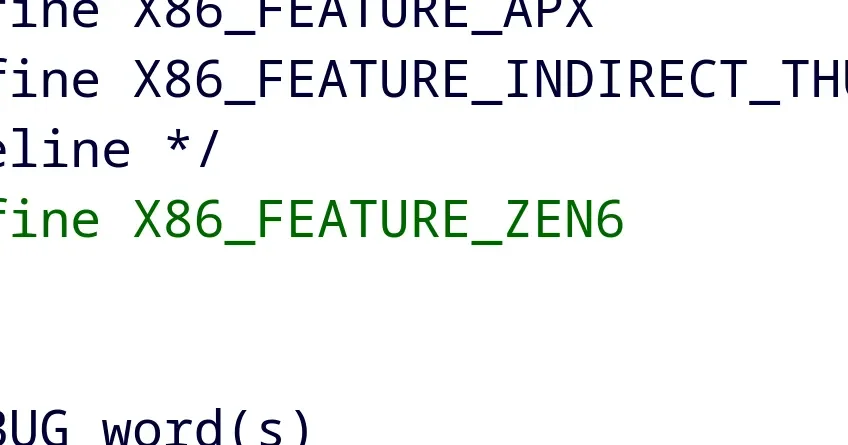
AMD Zen 6: Linux Kernel Support Arrives Signals Promising Future for Ryzen and EPYC
The journey to AMD's next-generation Zen 6 CPUs has officially begun! AMD is laying the groundwork for its future processors with the first patch submitted to the Linux kernel. This may seem like a small step, but it's a crucial one, signaling that Team Red is gearing up for a significant leap in CPU technology. What can we expect from these next-gen processors, and how will they impact the future of both desktop and server computing? The news has stirred excitement among tech enthusiasts, hinting at potential performance gains and architectural innovations.
The initial patch introduces the "X86_FEATURE_ZEN6" flag, which will allow the kernel to identify and optimize for Zen 6 CPU cores. This is a standard procedure, indicating that AMD is actively integrating its upcoming architecture into the Linux ecosystem. According to reports, Zen 6 CPUs will fall under the Family 1Ah code, similar to Zen 5, with model IDs ranging from 0x50 to 0x5f, 0x90 to 0xaf, and 0xc0 to 0xcf. This suggests a continuation of certain architectural features, paving the way for exciting advancements.

But what about the potential performance? Rumors suggest that Zen 6 may bring significant improvements, especially in gaming. One exciting possibility is a 12-core CPU with a unified chiplet design and generous L3 cache, potentially outperforming even the acclaimed Ryzen 7 9800X3D. This would address the limitations of current multi-chiplet designs where not all cores have direct access to the 3D V-cache. Imagine a 24-core desktop CPU, combining 12 cores with 3D V-cache for gaming with 12 high-clocked cores for demanding multi-threaded tasks. This could truly be a "do-it-all" chip.

Of course, these are still rumors, but the Linux patch adds credibility to the development timeline. AMD is also planning EPYC "Venice" CPUs featuring Zen 6c and Zen 6 cores for the server market. These server-grade CPUs will come in 12, 24, and 32 core configurations, suggesting AMD's commitment to offering a range of options for different workloads and performance requirements.
The early Linux support signals that AMD is serious about Zen 6 and that we can expect more concrete details to emerge in the coming months. The race for CPU dominance is heating up, and AMD seems well-positioned to continue pushing the boundaries of what's possible.
What are your thoughts on the AMD Zen 6 architecture? Are you excited about the potential for improved gaming performance and multi-core capabilities? Share your expectations and predictions in the comments below!